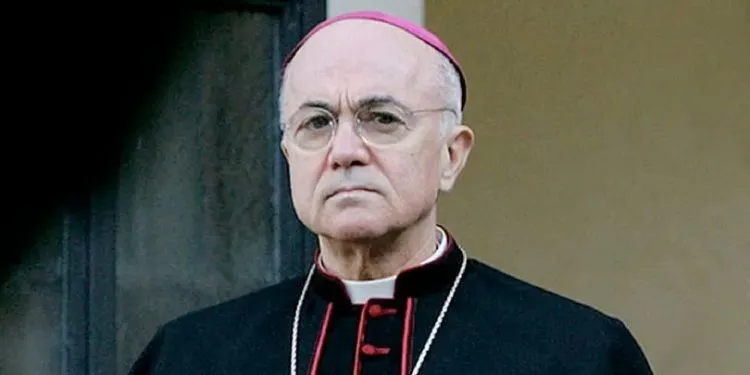The Vatican has excommunicated Archbishop Carlo Maria Viganò, a former Apostolic Nuncio to the United States, citing his refusal to submit to the authority of Pope Francis and his rejection of key reforms of the Second Vatican Council. The announcement, made on Friday, July 5th, marks a significant escalation in tensions within the Catholic Church.
The decision to excommunicate Viganò follows a penal process conducted by the Dicastery for the Doctrine of the Faith, which found him guilty of the “reserved delict of schism.” According to a statement from the dicastery, Viganò’s public statements clearly demonstrated his refusal to recognize and submit to Pope Francis, as well as his rejection of communion with fellow Catholics and the legitimacy of the Second Vatican Council’s magisterial authority.
The Second Vatican Council, convened in the 1960s, introduced groundbreaking reforms including the use of local languages in Mass, greater involvement of laypeople in Church affairs, and initiatives to foster interfaith dialogue.
Excommunication is the gravest penalty the Catholic Church can impose, effectively excluding Viganò from participating in certain sacraments and formally severing him from the Church community.
Viganò rose to prominence in 2018 when he publicly accused Pope Francis and other Church leaders of covering up sexual abuse allegations against former Cardinal Theodore McCarrick, allegations the Vatican vehemently denied.
The former Archbishop’s tenure as Apostolic Nuncio to the United States from 2011 to 2016 was marked by controversies, including his invitation of Kim Davis, a Kentucky clerk who refused to issue marriage licenses to same-sex couples, to meet with Pope Francis during his visit to the United States in 2015. The Vatican later clarified that the meeting was not an endorsement of Davis’s actions.
More recently, Viganò criticized Pope Francis’s decision to allow blessings for same-sex couples in churches, albeit under specific conditions that do not resemble wedding ceremonies. In documents submitted to the dicastery trial, Viganò lambasted Francis for what he termed as promoting acceptance of “homosexualism” while allegedly shielding his associates from scandal and promoting them to higher positions within the Church.
The excommunication of Viganò highlights the deepening rift between the former Archbishop and Pope Francis, raising questions about whether Viganò will seek reconciliation with the Church or continue on his current path of dissent.



